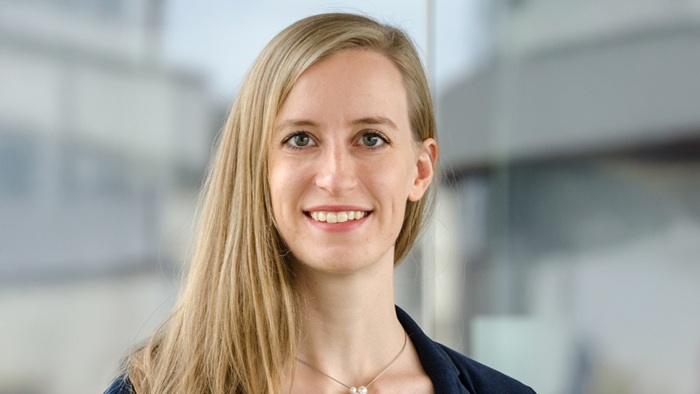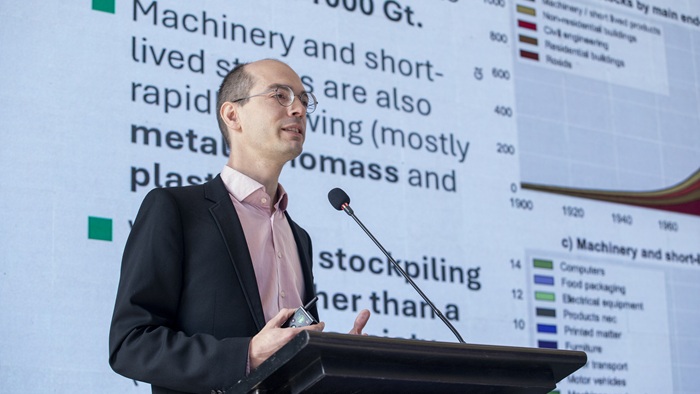The category of ERC Starting Grants is aimed at outstanding scientists at the beginning of their careers and is endowed with up to €1.5 million. Talented young researchers with a promising track record and an excellent new research idea can apply for the Starting Grants. Among other things, the funding is used to set up an academic working group for the respective award-winning research project.
The selection process is highly competitive: only 12% of the projects submitted are ultimately funded. We are therefore all the more delighted for the network members whose research has been recognized in this way.
Junior professor Dr. Mona Garvert researches the influence of emotions on the human brain
People often assume that their behavior is rationally controlled by cognition. But emotions have a profound influence on how we perceive the world, process information and ultimately act. Nevertheless, science often investigates these two brain functions in isolation from one another. Mona Garvert is a junior professor of neuroscience at JMU Würzburg and an alumna of the Elite Graduate Program Neuro-Cognitive Psychology. Her goal is to overcome this separation: In her ERC project CogFlex, she aims to prove that emotions have a direct influence on the way the human brain maps the environment and how it generalises, updates and responds to information. To this end, the researcher uses high-resolution functional magnetic resonance imaging and mathematical models, among other things. Her work aims to provide new insights into the neurobiological basis of flexible behaviour. In the long term, it could also expand the knowledge of mental illnesses in which these processes are disrupted.
Christoph Helbig, Professor of Ecological Resource Technology at the University of Bayreuth and alumnus of the Max Weber Program, was also awarded an ERC Starting Grant in 2025. His project SEMPATHY (Socio-Economic Metabolism Pathways for Sustainable Metal Cycles) aims to develop an innovative methodology to address the urgent issue of dissipation in global metal cycles, laying the foundation for a sustainable, resilient, and secure supply of technology metals.
As global demand for these metals rises—driven by renewable energy, e-mobility, and digitalisation—the environmental impacts of metal production and processing are becoming increasingly significant. SEMPATHY tackles this challenge by developing a revolutionary modelling framework that, for the first time, enables a systemic view of global metal cycles. It can track metals as alloying elements, impurities, or within waste streams. The result will be digital, interactive metal pathway maps that trace the journey of technology metals from mining to recycling, taking into account yield rates, elemental composition, and unintended contamination.
Numerous other members of the Elite Network have been awarded ERC grants this year and in recent years.
The following were also successful in the Starting Grants category in 2025:
- Prof. Dr. Niki Kilbertus, Professor of AI for Scientific Modeling at the Technical University of Munich
- Prof. Dr. Tobias Rüttneauer, Assistant Professor of Quantitative Social Science at University College London
- Dr. Konrad Viebahn, Junior Research Group Leader at ETH Zurich
- Dr. Benedikt Zott, Albrecht Struppler Clinician Scientist at Technical University of Munich (MRI)
The prestigious funding for young scientists was also awarded to five alumni of the Elite Network in 2024:
- Dr. Markus Dierigl, Senior Researcher at the Arnold Sommerfeld Center for Theoretical Physics at LMU Munich
- Prof. Dr. Mareike Grotheer, Head of the Educational Neuroscience Department at Philipps University of Marburg
- Prof. Dr. Jana Hutter, Professor of Smart Imaging and Data Profiling at Erlangen University Hospital
- Prof. Dr. Florian Ströhl, Research Professor at UiT The Arctic University of Norway
- Prof. Dr. Lisa Suckert, Associate Professor at the University of Antwerp
In addition, two of the ERC Consolidator Grants, worth up to €2 million, went to Andreas Reiserer, alumnus of the Max Weber Program and professor of quantum networks at the Technical University of Munich, and Kurt Schmoller, alumnus of the International Doctorate Program “Materials Science of Complex Interfaces” and research group leader at Helmholtz Munich.
We wish all award winners every success in their ambitious research projects.
Text: Robert Emmerich (JMU Würzburg), Theresa Hübner (Universität Bayreuth) und Geschäftsstelle des Elitenetzwerks Bayern



